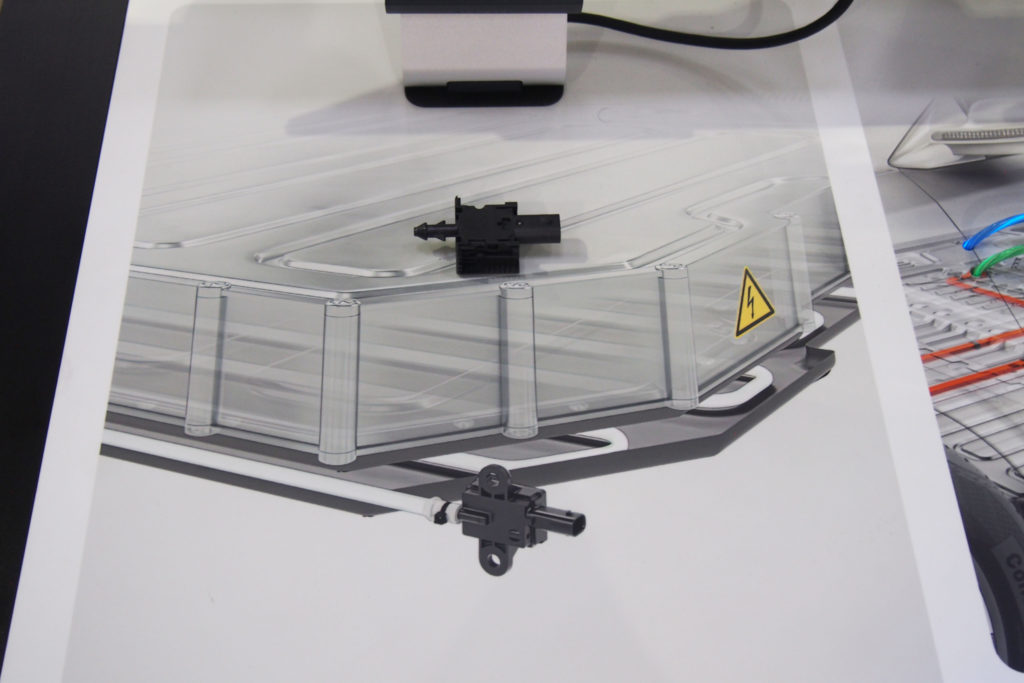Battery packs are the biggest, heaviest and most expensive component in an electric vehicle. For many reasons, if one of these energy reservoirs gets struck or impacted while driving, it’s critical to know where and how severe the damage is. Helping with this, supplier company Continental has developed a new battery impact detection sensor that’s smart enough to tell you which cell or module has been affected and even how bad the blow was.
SEE ALSO: TravelCenters of America is adding Electrify America chargers
Overall, this new design consists of two differential pressure sensors and a special sensor tube between them. That latter item snakes along the underside of the battery pack between the cell modules and the outer case. “And the way that it would work is it would provide a location and severity of an impact on the battery pack,” said Sam Azuz, systems supervisor at Continental. “So, it could be a small rock, a curb [or car accident],” this technology can easily distinguish different impact severities.
That impressive level of specificity would give “… instantaneous information to the driver, to the vehicle or even to the dealership,” explained Azuz. If you know which module or modules were damaged, you can open the battery pack and quickly replace the affected components, which could save loads of diagnostic time, which is never cheap, especially if it’s not covered under a manufacturer’s warranty.

Of course, if you know exactly how hard a battery got hit, you can tell if service is even necessary. At a certain threshold, lighter blows may not even require a vehicle inspection. Continental’s new design is also built to last. As long as the pressure sensors aren’t crushed and the tube in between isn’t damaged, the sensor keeps working; it is not a one-time-use component.
Azuz said this technology is ready for integration with automakers and could hit the market within the next two years. Part of the reason this is ready to enter production is that it takes advantage of off-the-shelf hardware. “We’re using a current and mature in-production sensor, so it’s ready to go,” Azuz added. “It’s used for other purposes, for impact and pedestrian detection, but it’s not used for battery protection just yet.”
CHECK THIS OUT: 2023 Genesis Electrified G80 review: Smooth operator
Continental’s clever new battery impact sensor promises to be lighter, cheaper and far more precise than competing systems currently on the market. With so many benefits, OEMs will be smart to take advantage of this new technology in the near future.

